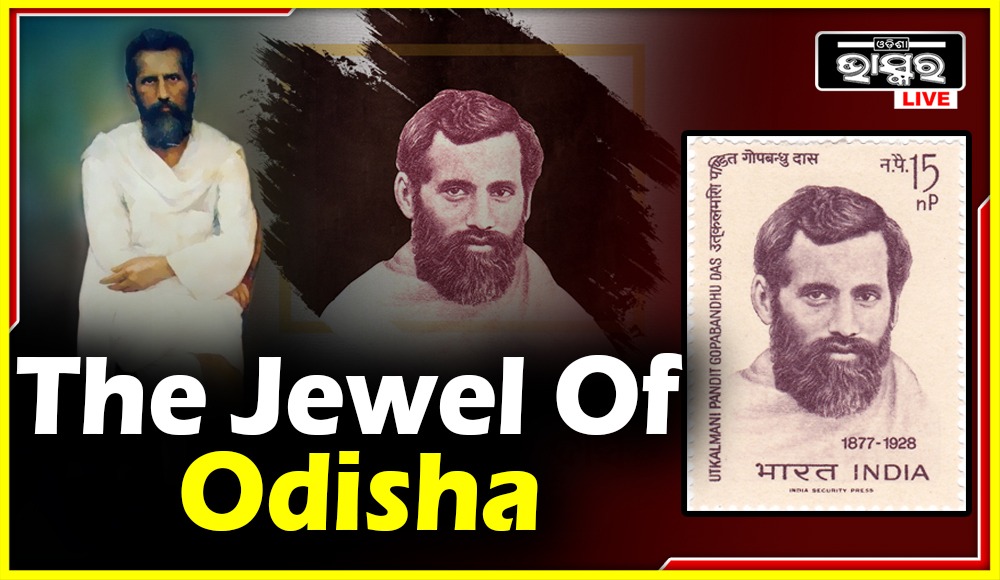Bhubaneswar: Utkalmani Pandit Gopabandhu Das, famously known as ‘Dase Apane’ is a symbol of Odia identity, who devoted his entire life to the cause of Odisha.
Ninth October, i.e; today, is his birthday and his birth anniversary is being celebrated across the state as Gopabandhu Jayanti.
The emergence of Pandit Das on the scene of Odisha as a crusader against socio-political evils catapulted the tempo and tenor of the ongoing movement.
He epitomized selfless service and dedication for which within a short span of time he secured a place among distinguished Orissa’s freedom fighters and social activists of the time.
Journalism, which has been performing its task of effective communication through passing information to the recipient in order to stimulate their opinion and thought process, got a new meaning in the pre-independent period of
enslavement, when it was used as an instrument to inform and educate the mass to prepare a ground for them to get rid of the foreign yoke.
In the early twentieth century, Odisha witnessed steady and marked progress in journalism and Pandit Das became the pioneer of this progress.
He put much emphasis on language and was of the opinion that there is a relationship between language and nationality as literature contributes a lot to the growth of a nation. Instead of the complex style of the time, he advocated a form simple and communicative capable of reaching high ideas to the common man in a language of his own.
In order to spread his ideas among the masses of Odisha, he first founded the monthly, ‘Satyabadi’ and later the weekly, the ‘Samaja’. In the editorial columns of these journals, Gopabandhu poured out his soul, his feelings, and his agonies too.
His penchant for journalism sprouted early in his youth itself when he tried his hand in writing pamphlets to edit magazines. Such was his obsession that even in school he incurred troubles in speaking his mind on different issues like the one in which he expressed his opinion in a magazine Indradhanu on the ongoing controversy as to the greatness of Upendra Bhanja and Radhanath Rai in 1893, for which he was censured.
The period was marked by the awakening of nationalist forces in Orissa, the introduction of western education and rise of Indian Renaissance.




Comments are closed.